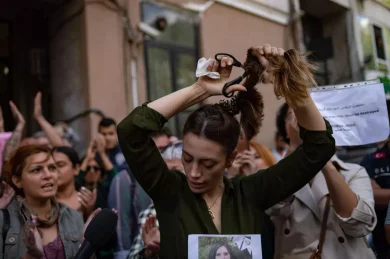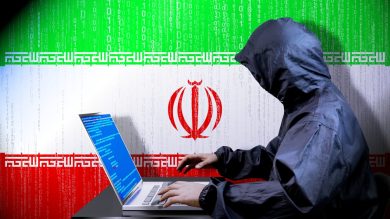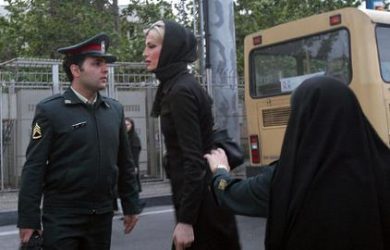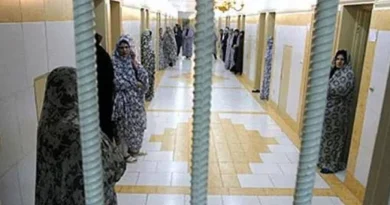Speaking out against authoritarian regimes often comes with grave consequences—but in Iran, dissenting against the Islamic Revolutionary Guard Corps (IRGC) can cost you your freedom, career, family, or even your life. This article explores the heavy personal, legal, and societal toll of defying the IRGC and how Iranian citizens—especially women, activists, and journalists—continue to speak out despite immense risks.
1. Who Is the IRGC?
• Established after the 1979 Islamic Revolution as a force to protect the Islamic Republic.
• Has grown into a military, intelligence, and economic powerhouse.
• Controls major sectors of Iran’s economy, including energy, construction, and telecommunications.
• Actively involved in suppressing dissent and enforcing ideological conformity.
• Designated a terrorist organization by the United States due to its regional destabilization efforts and human rights abuses.
2. Silencing Dissent: Tactics Used by the IRGC
A. Surveillance and Monitoring
• Use of state-of-the-art surveillance technologies to monitor phones, emails, and social media.
• Deployment of cyber units to track activists domestically and abroad.
B. Arbitrary Arrests
• Detainees are often taken without warrants, sometimes in the middle of the night.
• Charges like “propaganda against the state” or “collaboration with foreign powers” are frequently used.
C. Torture and Forced Confessions
• Physical beatings, solitary confinement, mock executions.
• Confessions are often broadcast on state TV to intimidate others.
D. Legal Repression
• Revolutionary courts with no due process.
• Harsh prison sentences for peaceful activism.
• Activists denied access to lawyers or fair trials.
3. The Human Cost: Stories of Courage
A. Narges Mohammadi
• Human rights defender who has been repeatedly imprisoned.
• Subjected to solitary confinement and denied medical care.
• Continues to write and advocate for women’s rights from behind bars.
B. Nasrin Sotoudeh
• Prominent human rights lawyer.
• Arrested for defending women who protested forced hijab.
• Sentenced to decades in prison and lashes.
C. Journalists and Whistleblowers
• Reporters exposing IRGC abuses are frequently imprisoned or forced into exile.
• Cyber harassment campaigns launched against those abroad.
4. The Impact on Families
• Family members of dissidents face:
• Surveillance.
• Job loss.
• Denial of educational and legal rights.
• Threats and interrogation.
• Many activists refrain from speaking out to protect their loved ones.
5. Exile and Life Abroad
• Thousands have fled Iran to escape persecution.
• Even abroad, many report:
• Threats from IRGC operatives.
• Hacking attempts.
• Surveillance by embassies or affiliated organizations.
• Fear of retaliation persists even in democratic countries.
6. International Response and Accountability
A. Global Condemnation
• UN reports and human rights watchdogs have documented these abuses.
• Calls for accountability and targeted sanctions have increased.
B. Sanctions on the IRGC
• The United States designated the IRGC as a terrorist organization in 2019.
• Some European lawmakers have pushed for similar designations, though the EU has not done so formally yet.
C. Support for Victims
• NGOs provide:
• Legal aid.
• Psychological support.
• Secure digital tools for activists.
7. The Role of the Diaspora and Social Media
• Exiled Iranians amplify the voices of those still in Iran.
• Platforms like Instagram, X (Twitter), and Telegram are used to:
• Share testimonies.
• Report human rights violations.
• Mobilize international support.
8. Hope in Resistance
Despite the immense risks, Iranians continue to speak out. Each act of resistance—every protest, tweet, documentary, or court case—is a powerful rejection of the IRGC’s control.
Conclusion
Speaking out against the IRGC is an act of immense courage.
The cost is high, but the voices that rise against repression are building the foundation for a freer, more just Iran. The international community must support these voices, impose real consequences on violators, and ensure the IRGC is held accountable for decades of abuse.
Join Our Newsletter!
Stay informed with the latest updates, news, and ways to take action in the fight for justice and global security. Sign up now to get updates delivered straight to your inbox!





